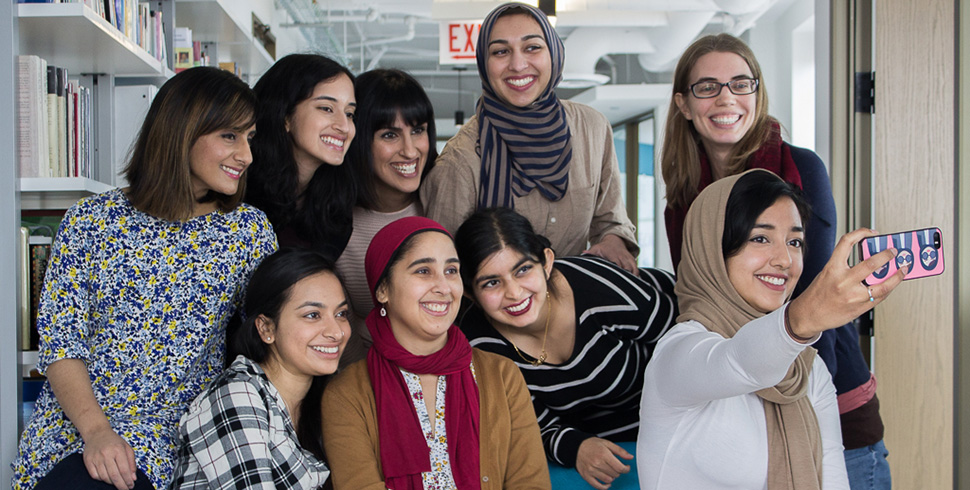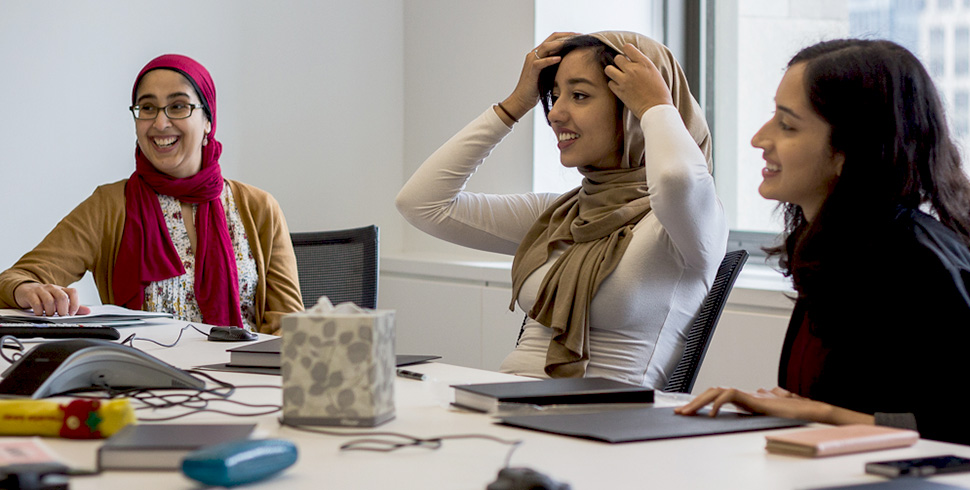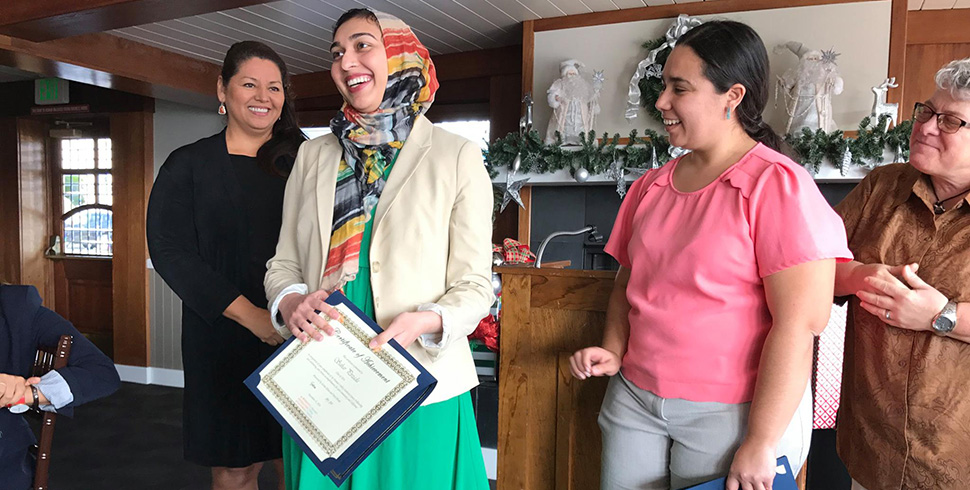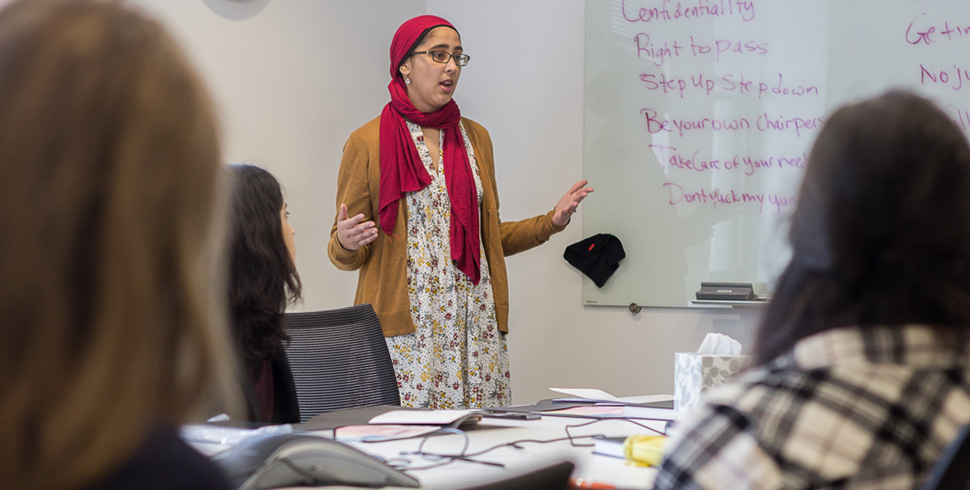Faith In Action
As a young girl, Nadiah Mohajir felt that sexual education classes didn’t apply to her. “I shut down and didn’t really pay attention,” she says. “I figured, Muslims don’t get STIs. They aren’t in abusive relationships.”
Later in her career as a health educator, Nadiah saw how a lack of information about reproductive health put young women at risk. “I’m hearing story after story of young girls not knowing how to identify their anatomy or common medical issues, women in abusive relationships but unable to get out of them, and not having enough information about sex and their bodies.”
While coordinating a health and wellness event about puberty, body image, and sex for Muslim women and girls in Chicago, Nadiah “discovered that current sex ed was missing the mark. Secular sex ed was not meeting the needs of faith communities,” she says.
Nadiah saw a need within the community and decided to act, creating HEART Women & Girls to promote sexual health and sexual violence awareness in Muslim communities. HEART offers health education and sexual assault advocacy, collaborates on reproductive health research, and trains service providers and professionals to better serve Muslim communities.
“One of the main things that inspires me everyday to keep working towards a world where there is gender equity is my own faith. I’ve always been taught that Islam is a religion of deep compassion, deep justice, and deep charity. It is an injustice that there is a silence and a stigma around sex and sexual assault and everyday I am working to push back against that narrative.”
HEART received its first institutional funding from CFW and the Young Women’s Giving Council as an emerging organization in 2010.
Silence & stigma around sexual assault is an injustice to all women. #TakeActionwithCFW Click To TweetCFW also invested in Nadiah as a leader. HEART participated in Core Concepts Coaching through the Women’s Leadership Development Initiative, which provides individualized instruction, personal coaches and consultants who works directly with the organization’s staff to build new skills, talent and knowledge. Nadiah worked with an executive coach to develop her fundraising strategy and took a management course at University of Illinois Chicago.
She is also a member of the CULTIVATE Women of Color Leadership Initiative through CFW, the Crossroads Fund, the Woods Fund of Chicago and the Chicago Community Trust. CULTIVATE aims to strengthen the sustainability of women-of-color-led organizations and to encourage new models of leadership development and community organizing.
Nadiah describes the leadership development she received through CFW as “fundamental in helping us build our work and our operations to get to a point where we’re not just doing a one-off program but we are able to think about strategically where we want this work to go.”
“Nadiah has been one of those leaders that has taken advantage of all of the support CFW offers, which has really helped her and her organization accelerate their growth pretty fast,” says CFW President/CEO K. Sujata. Since 2010, HEART has grown from an emerging organization to a member of CFW’s general grants.
HEART Women and Girls makes health information specifically geared for Muslim youth more accessible, through culturally sensitive workshops and a virtual resource center that allows people to access videos, webinars and other online resources from home.
“We are living in a country that is so racially, ethnically, and religiously diverse,” says Nadiah. “Offering programming that is a one size fits all, it ends up diluting both the information that you’re able to provide but also ends up diluting the ability to meet the unique needs of a specific community.”
HEART considers the needs of Muslim girls from immigrant families, who may face unique challenges in accessing information due to language barriers, or in reporting sexual assault or abuse if “they fear the abuser will be deported or they are financially dependent on the abuser.”
Muslim survivors of sexual assault often face stigma within and outside of their community. A cultural context that values modesty and sexual purity and in which there may not be a clear understanding of what sexual assault is, poses challenges in supporting survivors of assault. Why wasn’t your head covered? Why weren’t you dressed modestly? Why were you alone with him?
HEART works with Muslim communities, “particularly on college campuses, to start breaking down these myths around sexual assault in the community.”
On the other hand, women who want to report abuse and sexual assault fear Islamophobic reactions from non-Muslim, mainstream institutions. “That is often a trigger for them to shut down again,” says Nadiah. To make it safer for Muslim women to report sexual assault, HEART provides culturally sensitive trainings for organizations like Planned Parenthood, Advocates for Youth, and the National Sexual Violence Resource Center.
HEART knows that solutions require collaboration between the Muslim and non-Muslim community. “We need multiple kinds of people to actually create change,” says Nadiah. “It allows you to address an issue from a different perspective that you may not have considered because it’s not your worldview.”




